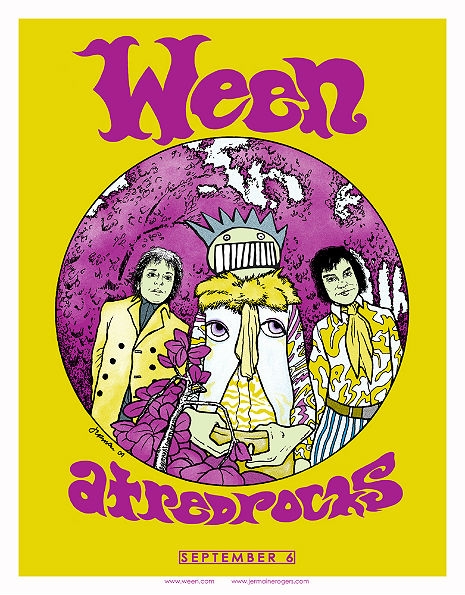
Anyone who’s ever given Ween’s 1991 album The Pod a good listen is aware that Dean Ween (real name: Mickey Melchiondo) is willing to try pretty much anything on the guitar, a quality that has permitted him to craft some of the most inventive and startling guitar solos of the last twenty-five years. Ween is famous for moving all over the musical map in their songs, and Dean Ween’s evidently endless ability to transform is a good part of the reason why.
Earlier this year Dean Ween appeared on the Internet show Guitar Moves, hosted by Matt Sweeney, and rapped for a while about his influences and revealed a key penis-related trick to being a good guitarist.
Before getting to all the intricacies of major seventh chords and minor sevenths and “F-sharp thirteenths” (!)—this in the process of explaining how he came up with the bed for “Mister Would You Please Help My Pony,” off of 1993’s Chocolate and Cheese—Dean copped to returning to two classic 1970s songs for inspiration over and over again: the Allman Brothers’ “Blue Sky” (guitarist: Dickey Betts) from their 1972 album Eat a Peach and the title song off of Funkadelic’s 1971 album Maggot Brain (guitarist: Eddie Hazel).
Allman Brothers Band, “Blue Sky”:
Funkadelic, “Maggot Brain”:
Ween fans will remember that Dean and Gene Ween (real name: Aaron Freeman) paid tribute to Funkadelic on Chocolate and Cheese in the form of the album’s fifth song, “A Tear for Eddie”—the “Eddie” in question being Eddie Hazel. In the episode of Guitar Moves, Dean also relates the experience of sharing an elevator with Dickey Betts when he was twelve years old—“it was like being in an elevator with Sonny Barger or something, from the Hells Angels, except worse, he was like green and pockmarked….”
For the most part, Ween made its reputation off its first three or four albums and then settled into a comfortable cult status for the last decade or so of its existence (the duo broke up in 2012). As a band that ventured dangerously close to “novelty act,” Ween was cannily able to secure a modicum of creative independence despite delivering five albums to major label Elektra over eight years, but they never quite garnered their critical due as a major contemporary act that produced literally dozens of jaw-dropping ditties.
There’s also a vague feeling that the quality of Ween’s output may have dropped off somewhat after their 1997 genius concept album The Mollusk, but I for one don’t agree. There are loads of gems to be found on White Pepper, Quebec, Shinola Vol. 1, and La Cucaracha.
Guitar Moves, episode 6: